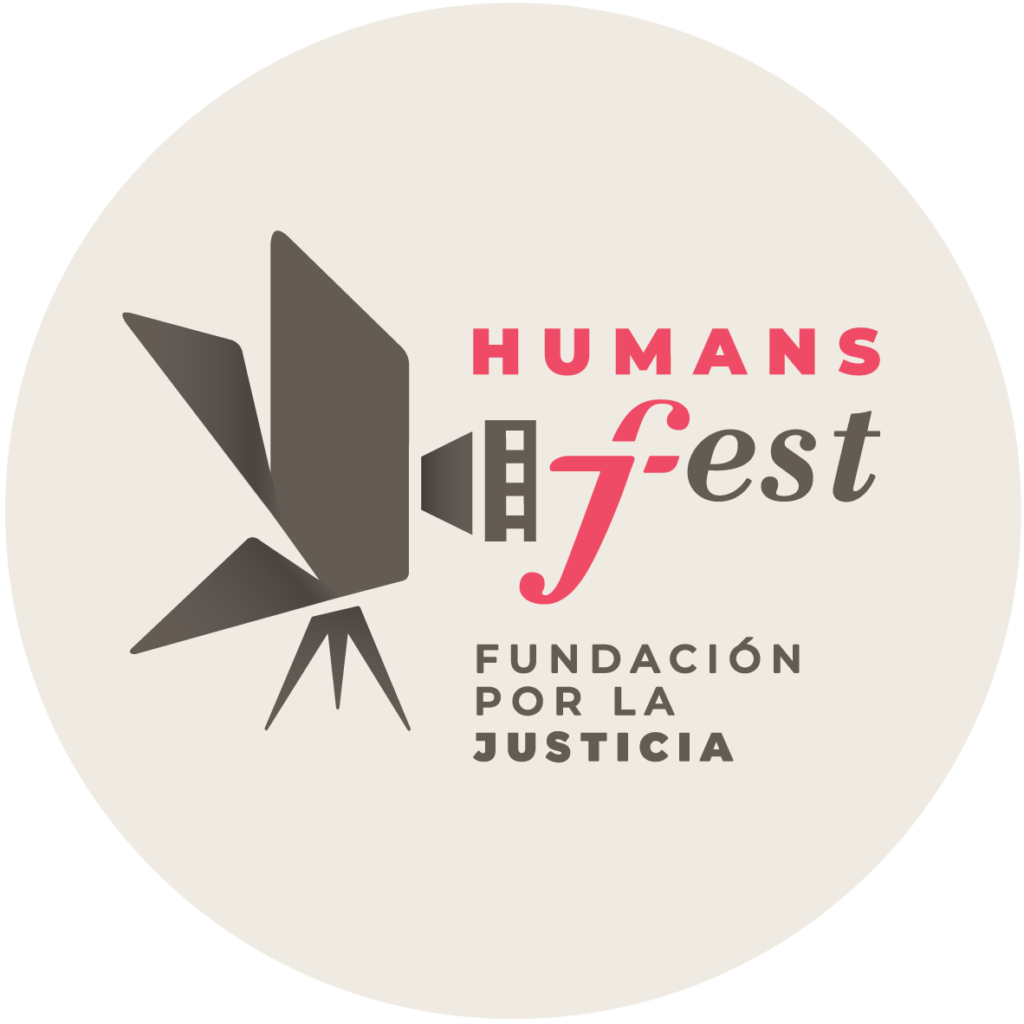- The 13th edition of this festival, organized by the Foundation for Justice, will be held from June 9 to 18
- The deadline for submitting feature films and short films to participate in the official section will be open from February 22 to April 22.
VALENCIA, FEBRUARY 2022. The Valencia International Film and Human Rights Festival, Humans Fest, has announced news for its XIII edition, which this year will focus on the migration and the shelter from a anti-racist and gender perspective. To this end, it will bring a selection of cinematographic and documentary works that citizens will be able to enjoy in different spaces around the city. “We aspire to move, outrage and mobilize the widest and most diverse audience possible,” explains José Mª Tomás y Tío, president of Foundation for Justice, the organizing entity.
The XIII Humans Fest will be led by the journalist Majo Siscar, who in 2022 will make her debut as director of the festival together with a team made up of journalists Cristina Vivo, as production coordinator, Pilar Almenar, as awareness coordinator, and Laura Bellver, as communications coordinator. All of them are firmly committed to claiming the cinema as a tool of incidence, complaint y debate.
In the words of Majo Siscar: “Europe systematically violates human rights in its migration policies. At the borders, in the CIEs, in a control industry that kills. Just trying to reach Spain, in 2021, 12 people died every day. That's more than 4,000 in one year. We can't keep looking the other way.”
CINEMA FOR HUMAN RIGHTS WILL GO “OUT ON THE STREETS” IN JUNE
Among the news of the Humans Fest in its XIII edition is a change in the calendar, since this year it will be held from June 9 to 18The new date has allowed the festival to take a leap forward, organizing projections in squares and public venues of four neighborhoods from Valencia that stand out for their interculturality: Rascanya (Orriols-Torrefiel), The Cabanyal, Patraix y Nazareth.
These will therefore be added to the usual screenings in the city centre and to parallel activities, such as different workshops with young people and people from groups in situations of exclusion. In addition, all the films will be accompanied by debate tables both with expert voices in cinema and with activists for the rights of migrants and racialized people.
AN OFFICIAL SECTION OPEN TO PROPOSALS
For their part, the basics registration to participate in the official section of the XIII Humans Fest can be consulted on the website www.humansfest.com/bases-2022/ and on the specialised platform Festhome. The deadline will remain open for two months, that is, until 22 April at 23:59.
In 2022 they are distinguished five categories: Humans Fic Awards, for the Best International Fiction Feature Films and Short Films; Humans Doc Awards, for the Best Documentary Feature Films and Short Films; Acollida Award, for the best Valencian human rights short film; and 1 minute, 1 border Award, for microfilms. In addition, a honorary prize to a person who stands out for his or her career in defending human rights in the audiovisual world.
In total, they will be selected about thirty films between feature films and short films. According to the guidelines, these will be works that move away from the “dominant security paradigm” to show “the complexity of migration, from the causes to the consequences”, prioritizing “new narratives” and “a empowering look of migrants that moves away from victimization and includes a intersectional perspective”.
LOCAL, NATIONAL AND INTERNATIONAL CONSOLIDATION
However, Humans Fest is renewed in 2022 without losing the essence that has characterized it since its inception in 2008, which is also reflected in the new logo which debuts in this 13th edition and was created by the Valencian designer Ausiàs Tortosa. Foundation for Justice has managed to create a permanent space of Cultural integration and of social reflection about cinema about human rights that transcends the city's borders.
Thus, Humans Fest confirms in each edition the alliances built over years and is part of international networks such as the Human Rights Film Network. The festival is celebrated this year thanks to the contributions of, for now, the Ministry of Transparency, Social Responsibility, Participation and Cooperation; Valencia City Council; Valencian Institute of Culture; Caixa Popular and Diputació de València. It also has the collaboration of À Punt and EMT.
In short, Majo Siscar hopes to strengthen the brand Valencia, refugee city: “While international administrations are reinforcing the perspective of a fortress Europe, Valencia has shown itself in recent years to be an open city, positioning itself as a city of refuge for human rights defenders from all over the world,” he concludes.

